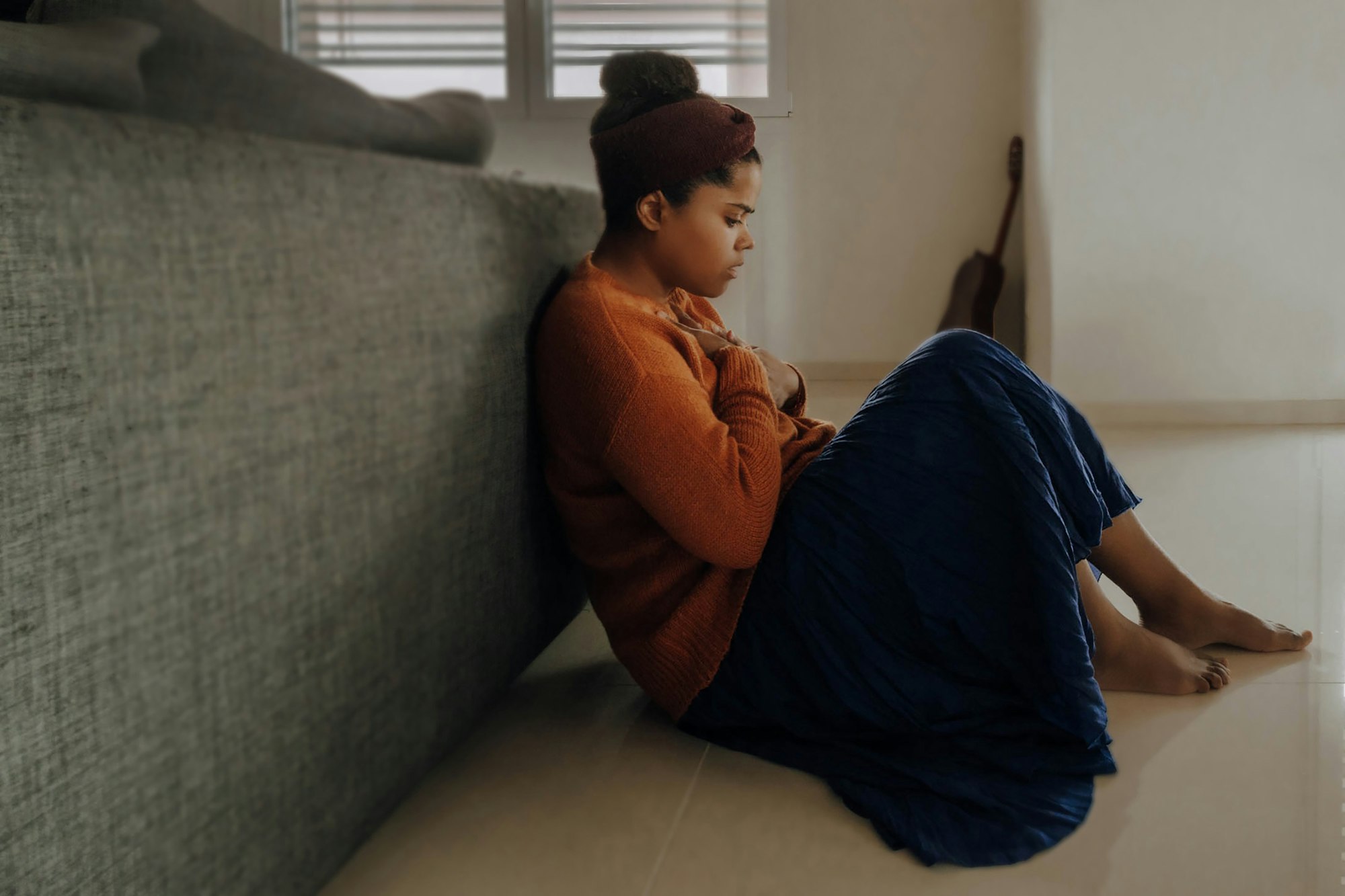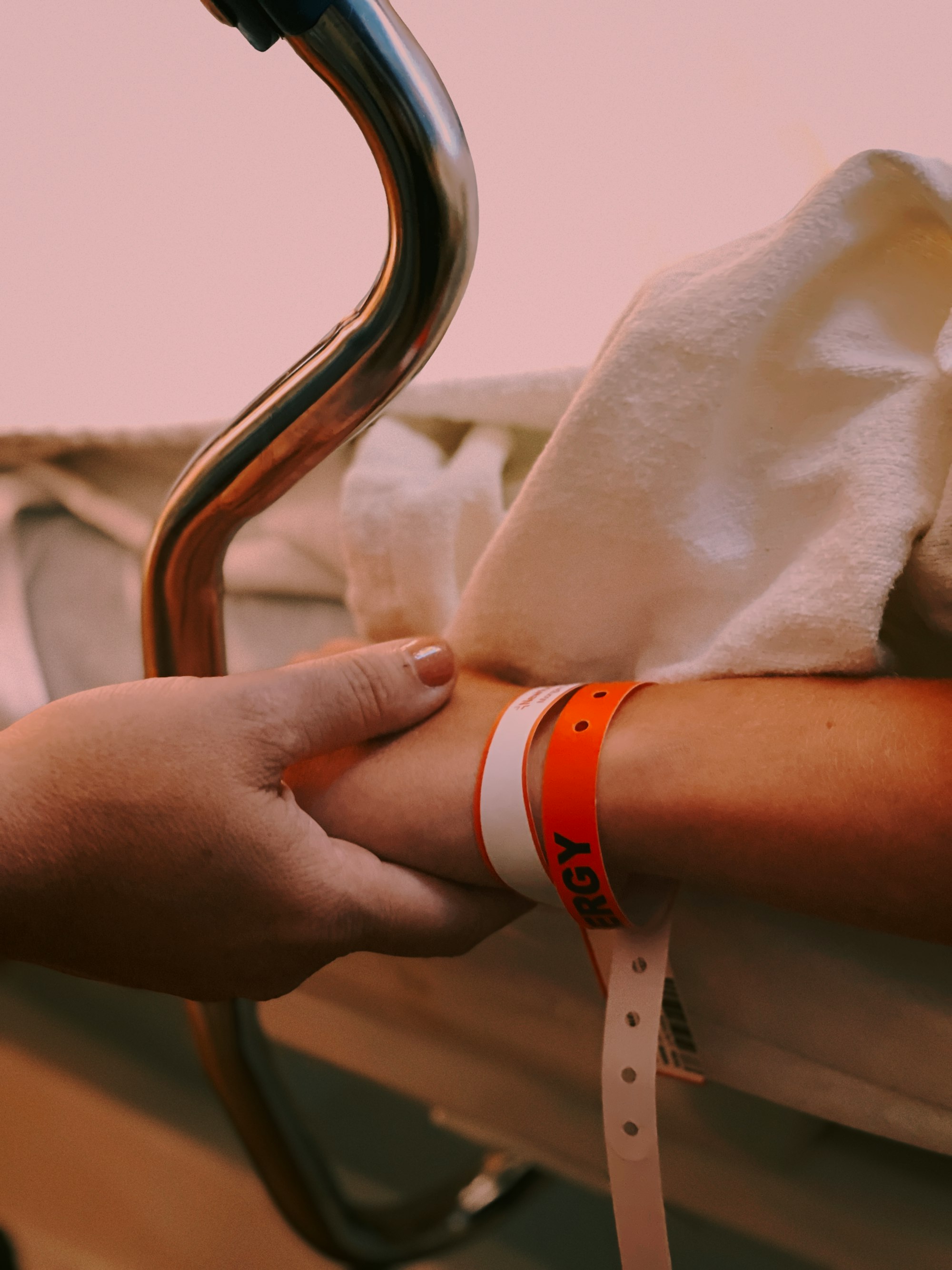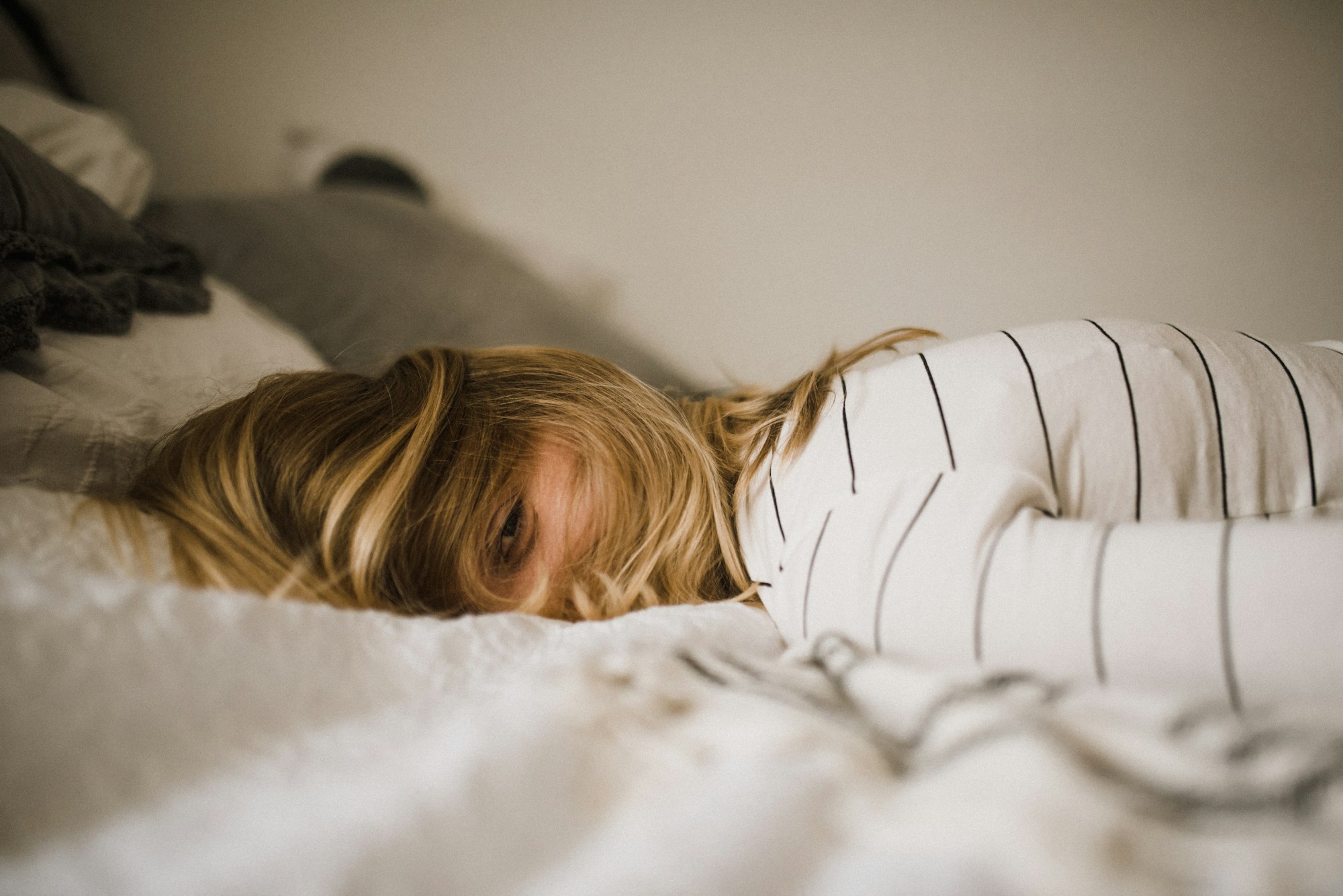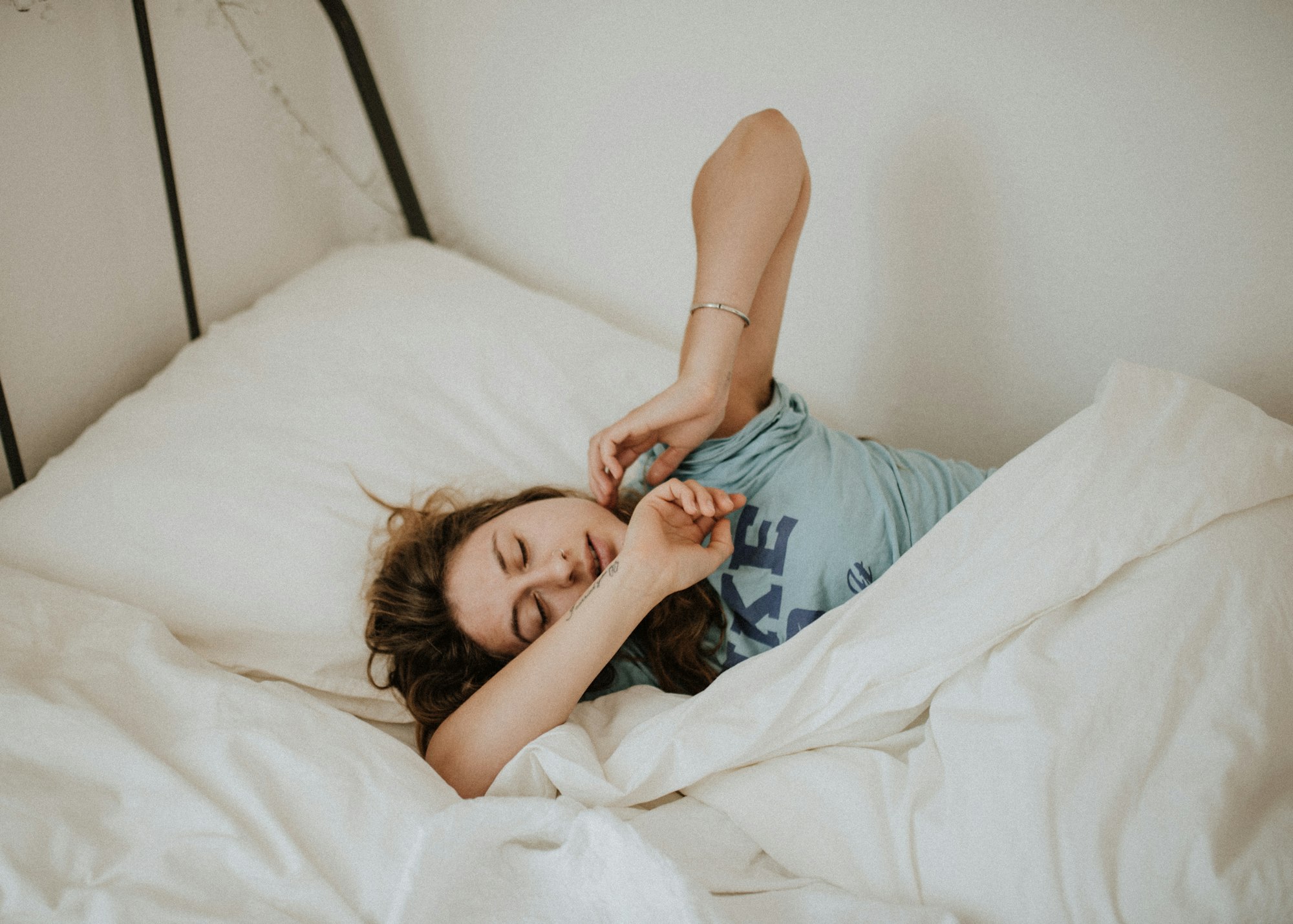How To Stop Hallucinations?
Dealing with hallucinations in a loved one can be overwhelming. Discover effective strategies to manage and reduce hallucinations, including identifying triggers, consulting medical professionals, and creating a calming environment to help improve their quality of life.

Finding Clarity in Chaos: Strategies to Halt Hallucinations
Hallucinations happen when individuals experience sensory perceptions that are not actually present. These experiences can cause an individual to see, hear, smell, or feel things that aren’t actually there. Although this phenomenon often occurs in those with mental health illnesses, it can be experienced by anyone and can be an extremely distressing and disruptive experience.
In this guide, we will be looking at what hallucinations are, the potential causes of hallucinations, and how to stop them. We’ll explore lifestyle and diet modifications that can help to reduce the risk of experiencing hallucinations, as well as a range of treatment options, natural remedies, coping strategies, stress and anxiety management techniques, and professional support. Finally, we will provide an outlook for those experiencing hallucinations and summarize the key elements for stopping them.
Introduction
Hallucinations can have a profound impact on our lives and can be difficult to cope with. In this guide, we will explore the potential causes of hallucinations and discuss what you can do to stop them. We will look at lifestyle and diet modifications, treatment options, natural remedies, coping strategies, exercise, and professional support.
We will also provide advice on how to manage stress and anxiety, and discuss the outlook for those experiencing hallucinations. This guide will provide an overview of key points and provide a starting point for anyone looking for help.
What are Visual Hallucinations?
Hallucinations are sensory experiences or occurrences that are not real and only exist in the mind of the individual experiencing them. They can affect any of the five senses, including sight (visual), sound (auditory), smell (olfactory), touch (somatic), or taste (gustatory). Common examples of hallucinations include hearing voices, seeing people or objects that aren’t there in an environment, or feeling a sensation on one’s skin that isn’t actually there.
Hypnagogic hallucinations are a type of visual or auditory hallucination that occur as one is falling asleep.
Hallucinations can be a symptom of a mental health disorder like schizophrenia, but they can also be caused by physical health issues like side effects of certain medications or sleep deprivation, as well as certain lifestyle circumstances such as substance misuse or long-term stress.
Types of Hallucinations
Hallucinations can manifest in various forms, each affecting a different sensory modality. Understanding the types of hallucinations can help in identifying and managing them effectively.
- Visual Hallucinations: These involve seeing things that aren’t there. Visual hallucinations can range from simple visual hallucinations, like flashes of light or shapes, to complex visual hallucinations, such as seeing detailed scenes, people, or animals. For instance, someone might see a person standing in the room when no one is actually there.
- Auditory Hallucinations: These involve hearing sounds or voices that do not exist. Auditory hallucinations can be as simple as hearing a ringing or buzzing noise, or as complex as hearing voices conversing or giving commands. Hearing voices is a common experience for those with certain mental health conditions.
- Tactile Hallucinations: These involve feeling sensations on the skin that have no physical cause. Tactile hallucinations can include feelings of being touched, pressure, or changes in temperature. For example, someone might feel as though insects are crawling on their skin.
- Gustatory Hallucinations: These involve tasting flavors that aren’t present. Gustatory hallucinations can be particularly distressing, as they can make food taste unpleasant or strange. Someone might taste something metallic or bitter without having consumed anything that would cause such a taste.
- Olfactory Hallucinations: These involve smelling odors that aren’t there. Olfactory hallucinations can range from pleasant scents to foul odors. For instance, a person might smell smoke or rotten food when there is no source for these smells.

Causes of Hallucinations in Mental Illness
Hallucinations can be caused by a broad range of mental and physical health issues, as well as the side effects of certain medications. To better understand what triggers your own personal hallucinations, it is important to become aware of the possible causes.
Mental health issues such as psychosis, depression, anxiety, and schizophrenia are common contributors to hallucinations. Substance use, sleep deprivation, and trauma can also trigger or worsen hallucinations. Other possible causes include seizures, dementia, brain tumours, and some medical conditions, such as Parkinson’s disease, multiple sclerosis, and HIV. Charles Bonnet syndrome is a condition where individuals with significant vision loss experience visual hallucinations without cognitive impairment.
Certain medications are also known to cause hallucinations, particularly antipsychotics, antidepressants, and drugs used to treat Alzheimer’s and Parkinson’s diseases. Additionally, some recreational drugs can lead to hallucinations, as can alcohol and withdrawal from other drugs. Lewy body dementia is another condition where a significant proportion of individuals may experience visual hallucinations.
It is important to note that some people experience hallucinations without any identifiable cause. This is known as primary hallucinations, and is much less common than secondary hallucinations which have an underlying cause identified.
What Causes Auditory Hallucinations?
Hallucinations can be caused by a variety of conditions, ranging from mental health issues to physical health issues and certain medications. Let’s take a look at some of the most common causes.
- Mental Health Issues: Mental health issues such as schizophrenia, bipolar disorder, and other forms of mental illness can contribute to the experience of hallucinations. Subclinical hallucinations and delusions can also occur in children and adolescents who do not meet the criteria for a specific psychotic disorder.
- Alcohol and Drug Abuse: Substance abuse can also cause hallucinations, even after the person has stopped using the substance.
- Side Effects of Medications: Some medications, such as antipsychotics or antidepressants can produce hallucinations as a side effect.
- Brain Injury or Disease: Brain injuries or certain brain diseases can also cause hallucinations.
- Sleep Deprivation: Prolonged periods of sleep deprivation can also lead to hallucinations.
Identifying Hallucinations
Distinguishing hallucinations from real sensory experiences can be challenging, but understanding their key characteristics can help.
- Intensity: Hallucinations are often very vivid and intense, making them seem real. This intensity can make it difficult to differentiate them from actual sensory experiences.
- Duration: The length of time hallucinations last can vary. They might be fleeting, lasting only a few seconds, or they could persist for several minutes or even hours.
- Frequency: The occurrence of hallucinations can be frequent or sporadic, depending on the underlying cause. Some individuals might experience them daily, while others might only have them occasionally.
- Trigger: Various factors can trigger hallucinations, such as stress, fatigue, or certain medications. Identifying these triggers can help in managing and reducing the occurrence of hallucinations.
Prevention Techniques
There are several things you can do to help reduce the risk of hallucinations. Making lifestyle and diet changes to strengthen your mental health is an important step.
- Eat a balanced diet full of nutrient rich foods such as fruits, vegetables, whole grains, and healthy fats.
- Get adequate sleep each night—aim for 8 hours.
- Reduce or eliminate caffeine, alcohol, and other drugs.
- Engage in regular physical activity— aerobics, weight lifting, or yoga.
- Use relaxation techniques such as mindful breathing and progressive muscle relaxation.
- Practice stress management techniques such as goal setting, problem solving, and relaxation.
- Find social support in family, friends, and support groups.
- Engage in activities that bring joy and relaxation such as hobbies, crafts, and music.
Making these lifestyle and diet modifications can help to strengthen your mental health, improve your overall wellbeing, and reduce the risk of experiencing hallucinations.
Treatment Options for Hallucinations
Hallucinations can be difficult to cope with, especially if they are causing distress. Fortunately, there are a variety of treatments that can help those seeking to stop their hallucinations. Hallucinations are often considered psychotic features and are a fundamental symptom in psychiatry that require appropriate treatment.
The most common treatment for reducing or stopping hallucinations is medication prescribed by a doctor. Antipsychotic medications may be prescribed to treat the underlying cause. It’s important to discuss any side effects with your doctor. Additionally, a range of non-drug therapies such as cognitive behavioural therapy (CBT) can be used to help manage and reduce symptoms.
Talking therapies, such as psychotherapy, can help people develop skills to cope with their hallucinations. It can also help them find ways to manage the triggers of their hallucinations, or any associated feelings such as anxiety, fear, and depression.
Other treatments such as lifestyle changes (including diet and exercise), practising relaxation techniques, and having a consistent sleep routine can all help to reduce the intensity and occurrence of hallucinations.
It’s important to work with your doctor to find out which treatment options are right for you. Talk therapy combined with medication is often the most successful approach.
Pharmacological Treatment
Pharmacological treatment for hallucinations often involves the use of antipsychotic medications, which can help reduce their frequency and intensity.
- First-Generation Antipsychotics: Medications like haloperidol and chlorpromazine are effective in reducing hallucinations but may come with significant side effects, such as extrapyramidal symptoms (movement disorders) and tardive dyskinesia (involuntary movements).
- Second-Generation Antipsychotics: Medications such as risperidone and olanzapine tend to have fewer side effects compared to first-generation antipsychotics. They are also effective in managing hallucinations and other symptoms associated with psychotic disorders.
Non-Pharmacological Treatment
Non-pharmacological treatments can be highly effective in managing hallucinations and often complement pharmacological approaches.
- Cognitive-Behavioral Therapy (CBT): CBT helps individuals identify and challenge negative thought patterns and behaviors associated with their hallucinations. This therapy can provide tools to manage and reduce the impact of hallucinations.
- Family Therapy: Involving family members in therapy can improve communication and develop coping strategies. Family therapy helps create a supportive environment for the individual experiencing hallucinations.
- Support Groups: Joining support groups can provide emotional support and education about hallucinations and psychotic disorders. Sharing experiences with others who understand can be incredibly beneficial.
Natural Remedies
For those seeking natural treatments to help stop their hallucinations, there are a range of options available. Many of these remedies focus on lifestyle modifications such as diet and exercise, to help improve mental and physical health. Some of the most popular natural remedies include:
- Herbal remedies – Some herbal remedies have been reported to help reduce the intensity and frequency of hallucinations.
- Supplements – Certain supplements, such as probiotics and omega-3 fatty acids, may help improve mental and emotional health.
- Diet modifications – Eating a balanced diet rich in essential nutrients can help support overall health, while avoiding processed and sugary foods may help reduce the risk of hallucinations.
- Exercise – Regular exercise has been shown to help reduce stress and anxiety levels, which can help reduce the occurrence and severity of hallucinations.
- Relaxation techniques – Practicing relaxation techniques such as deep breathing, mindfulness, yoga, and Tai Chi can help reduce stress levels and improve your mental wellbeing.
- Cognitive Behavioral Therapy (CBT) – This type of therapy can help you learn how to manage stress and anxiety in order to reduce the frequency of hallucinations.
- Acupuncture – This traditional Chinese practice can help reduce stress and anxiety levels, which can help reduce the occurrence of hallucinations.
Before starting any natural remedies, it is important to talk to your healthcare provider to ensure that it is suitable for your individual needs.
Coping Strategies
Hallucinations can be difficult to manage but there are ways to cope with them in order to reduce their impact on your life. Here are some of the most effective coping strategies:
- Thought Challenging: This involves recognizing and re-interpreting any abnormal thought patterns associated with the hallucinations. For example, replacing a negative thought such as “I can't cope with this” with “I am in control”.
- Relaxation Techniques: This includes activities such as deep breathing and progressive muscle relaxation which can help to reduce anxiety and stress levels.
- Distraction Techniques: These involve engaging in activities that take your mind off the hallucinations, such as reading, writing, listening to music or watching TV shows.
- Talking it Through: Sharing your experiences with someone you trust can help to reduce the intensity of the hallucinations and provide clarity on the underlying causes.
You may also find it helpful to use a diary or journal to record your experiences with hallucinations. This can provide valuable insight into the triggers of your hallucinations and help you to find better ways to cope with them.
Supporting a Person with Hallucinations
Supporting someone experiencing hallucinations requires patience, understanding, and practical strategies.
- Provide Emotional Support: Offering emotional support and reassurance can help individuals feel more secure and less anxious. Let them know they are not alone in their experience.
- Encourage Open Communication: Open communication allows individuals to express their feelings and concerns about their hallucinations. This can help in understanding their experiences and finding ways to manage them.
- Help Develop Coping Strategies: Assisting individuals in developing coping strategies, such as relaxation techniques and problem-solving skills, can empower them to manage their hallucinations more effectively.
Providing Emotional Support
Providing emotional support involves several key actions:
- Active Listening: Pay close attention to the individual’s concerns and feelings about their hallucinations. Show that you are listening by nodding, maintaining eye contact, and responding appropriately.
- Empathy: Try to understand and share the individual’s feelings about their hallucinations. Empathy can help them feel validated and less isolated in their experience.
- Reassurance: Offer reassurance that they are not alone and that their hallucinations are not a sign of weakness or failure. Remind them that help is available and that they can manage their symptoms with the right support and treatment.
By following these strategies, you can provide meaningful support to someone experiencing hallucinations, helping them feel understood and less alone in their journey.

Stress and Anxiety Management
Stress and anxiety can be the main cause of hallucinations. Therefore, reducing our stress and anxiety levels is an important part of managing any hallucinations we may experience. Learning to identify when we are feeling overly stressed and anxious and taking proactive steps to help reduce those feelings is key.
The first step towards reducing stress and anxiety is to identify and understand the things that are causing them. Once these have been identified, steps can be taken to reduce their impact. For example, if work is a primary source of stress, then strategies such as delegating more tasks or taking a day off can be beneficial.
Additionally, self-care techniques such as regular exercise, relaxation exercises, and taking time out to do something enjoyable can also enable us to manage our stress levels effectively.
Finally, it's important to remember that seeking professional help is also an option if stress and anxiety levels become too difficult to manage on our own. A mental health professional can provide advice, guidance, and tools that can help to make our lives easier by reducing our stress and anxiety levels.
Exercise
Exercise is an important part of managing stress and anxiety, which can be a contributory factor for hallucinations. Not only is exercise beneficial for physical health, but engaging in regular physical activity has been proven to help improve mental health and reduce the risk of developing or experiencing hallucinations.
Regular exercise releases endorphins, which are hormones that act on the brain to produce a feeling of euphoria and have been linked to reducing feelings of depression and anxiety. Exercise also increases the flow of oxygen to the brain, which can help to improve cognitive function and provide an overall sense of wellbeing.
The type of exercise that is best for managing stress and anxiety will depend on individual preferences and abilities. However, most forms of exercise can be beneficial. Exercise can include activities such as walking, running, biking, swimming, yoga, and many more. It's important to find something that you enjoy so that it is easier to maintain the activity over time.
Professional Support
When it comes to dealing with the effects of hallucinations, seeking professional guidance and support can be an important part of a successful treatment plan. Professional support should come in the form of mental health professionals, such as therapists, counselors or psychologists, who specialize in helping people cope with psychological difficulties and restoring mental health. They can provide many different types of interventions, including cognitive-behavioral therapy (CBT) and medication, and help you develop strategies to cope with your symptoms.
It is important that you find a professional that you feel comfortable with and someone who understands your individual needs and is able to provide the right type of treatment. You should also consider seeking out support groups in your local area that are specifically for people living with mental health issues, or online forums and communities where you can share your experiences and learn from others.
Finally, if your hallucinations are caused by physical health problems, then you should make sure that you are getting the right medical treatment. Speak with your doctor or healthcare provider about your symptoms and find out what options are available to you.
Outlook for Lewy Body Dementia
For many people, it is possible to reduce or stop their hallucinations by using a combination of prevention techniques, treatments, natural remedies, coping strategies and professional support. However, as with all mental health conditions, the road to recovery is often a long one and challenges may arise along the way.
It is important to remember that everyone's experience with hallucinations and their ability to cope with them will be different. It is not always easy to get rid of hallucinations completely, but with time and practice you can find ways to manage them.
Although there is no one-size-fits-all solution for stopping your hallucinations, it is possible to achieve better control over your symptoms with the right treatments and lifestyle changes. If you are feeling overwhelmed, reach out for help from medical professionals or loved ones. There is no shame in seeking assistance.
Conclusion
Living with hallucinations can be incredibly challenging. Fortunately, there are a variety of methods you can use to help stop or manage them. In this guide, we have discussed the causes, prevention techniques, treatment options, natural remedies, coping strategies, stress and anxiety management, exercise, and professional support for those seeking to stop their hallucinations.
Remember that it is always important to seek professional help if you or someone close to you is experiencing recurrent and troublesome hallucinations. With the right counseling and treatment, it is possible to reduce or stop the hallucinations and improve your quality of life.
You might also like this article:


















